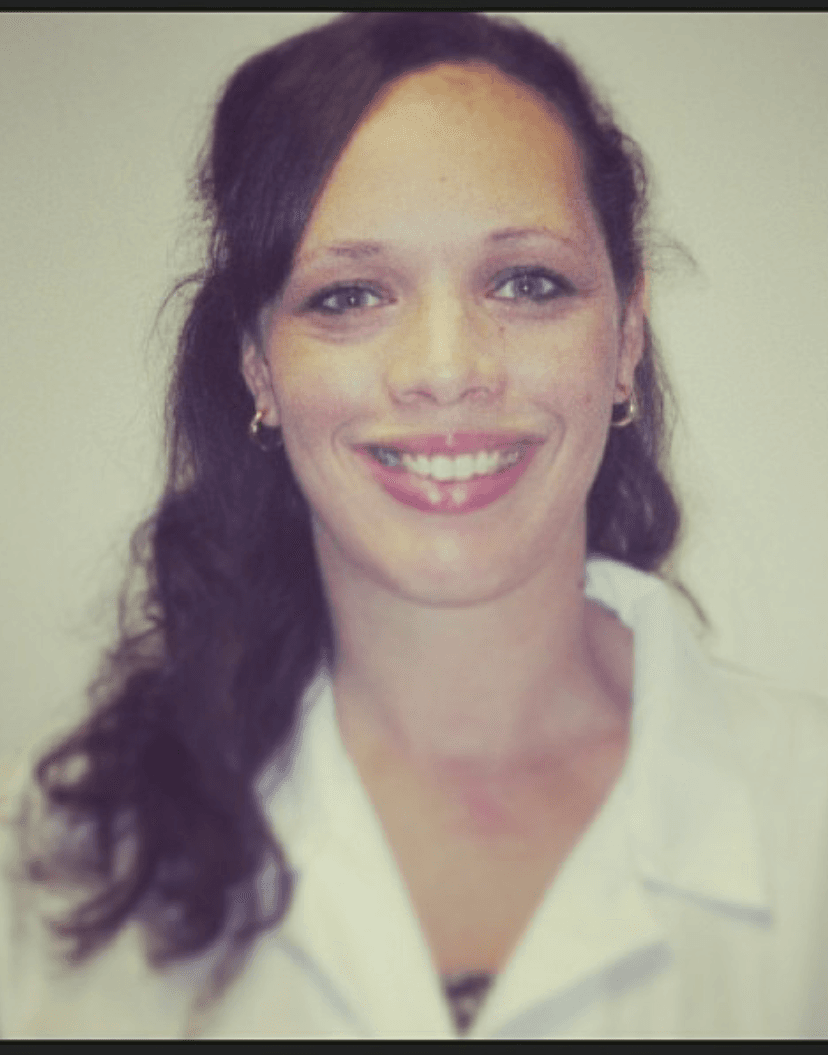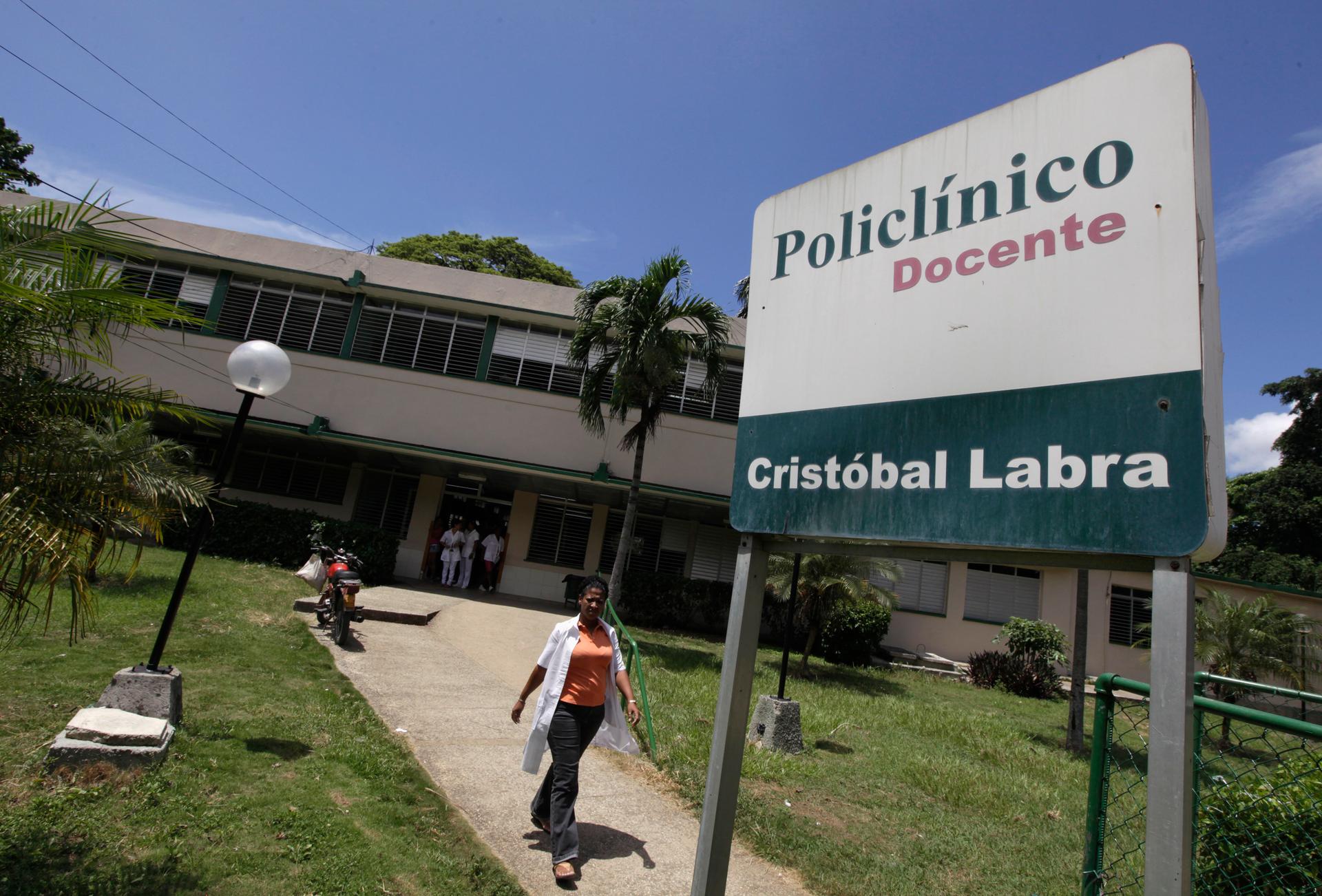A doctor walks in front of the Cristobal Labra health clinic. Cuba's medical industry is widely regarded around the world.
When Lillian Holloway was growing up in West Philadelphia in the 1980s, she says it was at the height of the crack cocaine epidemic and her neighborhood was a rough place to live.
"Growing up where I grew up, kids don't think about becoming doctors, it's just not something that is a possiblity," she says. Holloway eventually moved on to study nursing, but she couldn't finish because school got too expensive. In 2000, Holloway traveled to Cuba. She was in Havana with her young niece who suddenly fell ill.
"There were five doctors who lived in the same apartment complex where we were visiting," she says. "They all came and helped her and at the end we were really worried about payment. And they explained to us that they were more concerned about this little girl getting well, they were almost insulted about the idea of payment."

Cuba spends a fraction per patient as compared to the US, but has the same life expectancy and lower mortality rates.
Holloway says the Cuban healthcare model is focused on primary and preventive care, where doctors are assigned to take care of people in their communities. In Cuba, doctors will track their patients to make sure specific needs are met. For example, if several are smokers, the doctor will create a smoking cessation program for these patients.
"There may be a physician and a nurse on a city block, and they know all of the families on that city block and they know all of the risk factors that they have too."
Holloway says Cuba is where "medicine is a tool to make a difference." Now Holloway is an attending physician at Cook County Jail in Chicago. She says she chose to work at the jail because she wanted to serve young black males.
"Black men of that age are not coming in for preventive care and that's very sad, " she says. "I was trained to be an advocate for my patients and if they're not coming to me, I need to go where they are. And unfortunately that's where they are, in the jail."
A previous version of this story misspelled Lillian Holloway's name.
We want to hear your feedback so we can keep improving our website, theworld.org. Please fill out this quick survey and let us know your thoughts (your answers will be anonymous). Thanks for your time!
